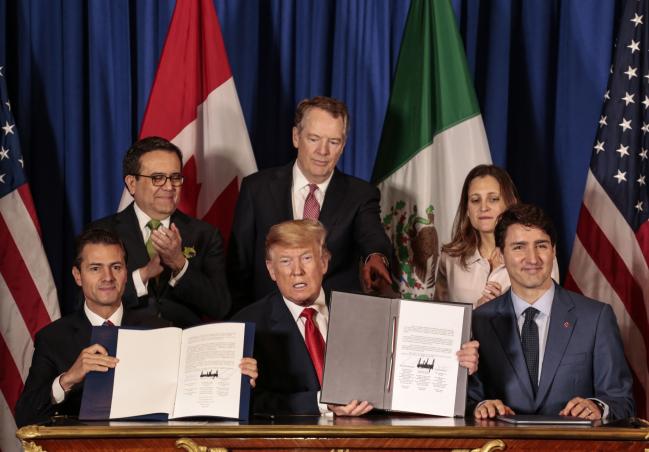(Bloomberg) -- Here’s an item on President Donald Trump’s trade agenda that relies on Democrats’ help that’s progressing surprisingly well: his new Nafta, dubbed the U.S.-Mexico-Canada Agreement.
The key ingredient so far? His day-to-day outbursts against the opposition are far removed from the process, people involved in the talks say.
After weeks of discussions between Trade Representative Robert Lighthizer and lawmakers, negotiators last week put pen to paper and are now working full steam to get to a resolution on issues that House Speaker Nancy Pelosi and her caucus want changed before the agreement could come up for a vote.
House Democrats last week submitted detailed proposals for fixes to Lighthizer and his team and are now waiting for a counter offer, the people said. Democratic staff say USTR has what it needs to formulate a package to address Democrats’ concerns, putting the ball in Lighthizer’s court to find a path forward.
The proposals, which outline changes to the deal’s labor, environment, pharmaceutical and enforcement provisions, mark the beginning of what is expected to be a month of back-and-forth exchanges of paper and continuous meetings between USTR and congressional staff.
Perhaps the most surprising aspect is the fact that Trump’s increasingly hostile rhetoric towards Democrats hasn’t yet impacted the process. Pelosi has not changed her marching orders; she continues to tell staff to focus on the substance of the agreement rather than get distracted by outside noise, according to the people familiar with the talks.
Still, it’s not clear how long that approach is sustainable. The 2020 election is around the corner and it becomes more and more difficult for Democratic candidates to justify giving Trump a win on his No. 1 legislative priority.
Charting the Trade War
Declining costs of materials used by America’s manufacturers may be starting to help diminish the impact of tariffs for some as the U.S.-China trade war rages on.
